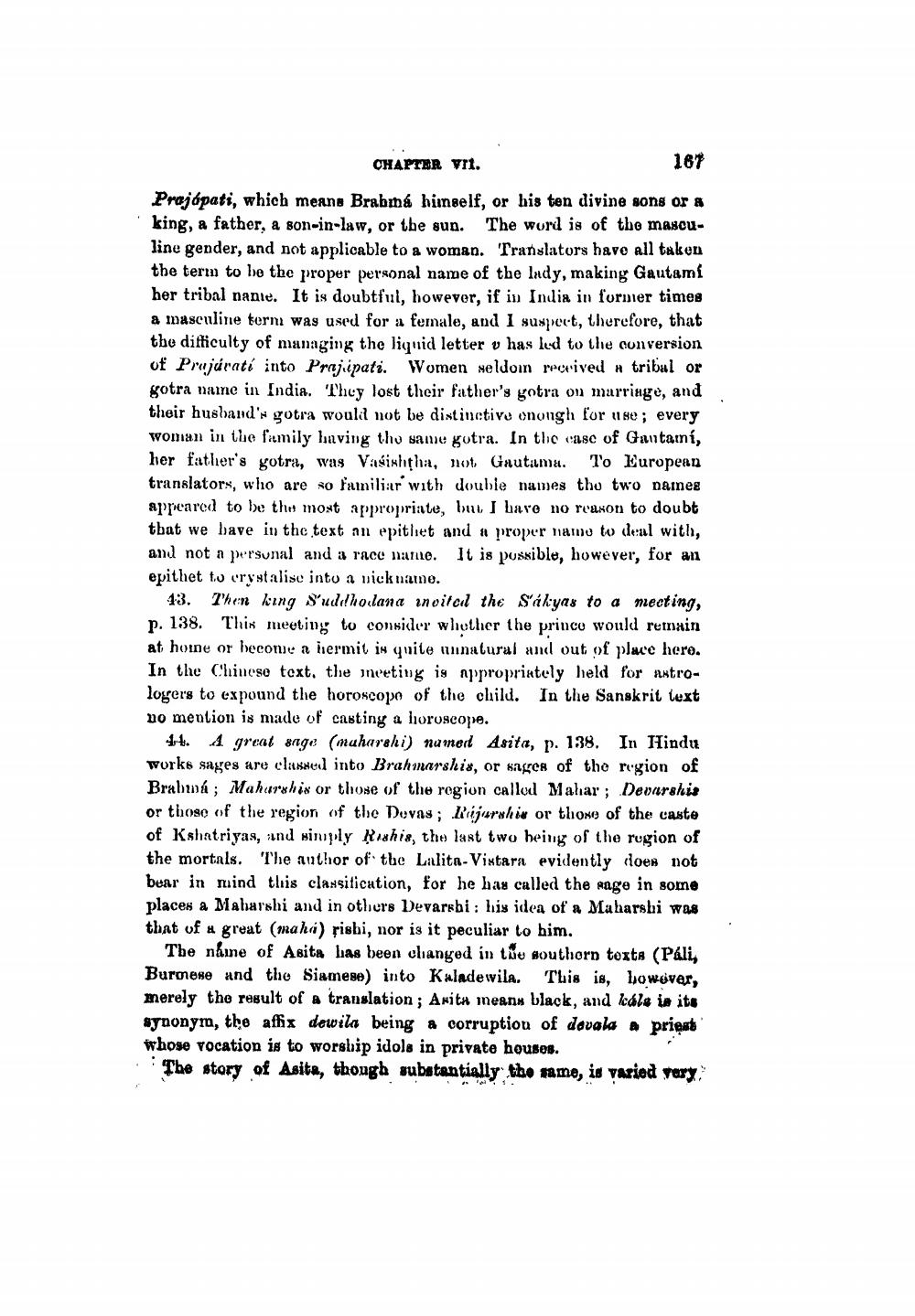________________
CHAPTER VII.
167
Prajópati, which means Brahmá hinself, or his ten divine sons or a king, a father, a son-in-law, or the sun. The word is of the Masculine gender, and not applicable to a woman. Translators have all taken the term to be the proper personal name of the Indy, making Gautami her tribal nanie. It is doubtful, however, if in India in former times a masculine ternı was used for a female, and I suspect, therefore, that the difficulty of managing the liquid letter v has led to the conversion of Prajárati into Prajipati. Women weldon received tribal or gotra name in India. They lost their father's gotra on marriage, and their husband's gotra would not be distinctive onongh for ge; every woman in the family having tho same gotra. In the case of Gantamí, her father's gotra, was Vasishtha, hot Gautama. To European translators, who are so familiar with double names thu two names appeared to be thy most appropriate, bau I have no reason to doubt that we bave in the text an epithet and a proper name to deal with, and not a persunal and a race name. It is possible, however, for an epithet to crystalise into a vickuame.
13. Then king Suddholana inoitcil the Sákyas to a meeting, p. 138. This meeting to consider whether the prince would remain at home or become a liermit is quite unnatural and out of place here. In the Chinese text, the meeting is appropriately held for astrologers to expound the horoscope of the child. In the Sanskrit text vo mention is made of casting a horoscope.
44. A great sage (muharshi) numer Asita, p. 138. In Hindu works sages are classed into Brahmarshis, or sages of the region of Brabwa; Maharshis or those of the region called Mahar; Devarshis or those of the region of the Devas; Rejurshis or those of the caste of Kshatriyas, and simply pushis, the last two being of the region of the mortals. The author of the Lalita-Vistara evidently does not bear in mind this classiticution, for he has called the rage in some places a Maharshi and in others Devarshi: his idea of a Maharshi was that of a great (maha) rishi, nor is it peculiar to him.
The naine of Asita las been changed in to southorn toxts (Páli, Burmese and tho Siamese) into Kaladewila. This is, however, merely the result of a translation ; Arita means black, and káls is its synonym, the affix dewila being a corruption of davala a pripada whose vocation is to worship idols in private houses.
The story of Asita, though substantially the same, is varied yery




